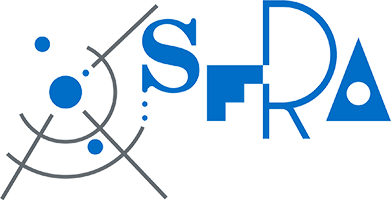Resources
This page contains an annotated listing of valuable resources for the science fiction scholar and teacher. Currently, only a handful of entries are present, but the intent is to make this a comprehensive listing, particularly highlighting the work of SFRA members. If you would like to contribute an entry or become curator of this page, please contact the SFRA President.
Research Resources
Encyclopedia of Science Fiction
An ongoing project to provide a comprehensive, scholarly, and critical guide to science fiction in all its forms.
Historical Dictionary of Science Fiction
Originally a project begun by the Oxford English Dictionary, the HD/SF is a dictionary of language and terms used in and about science fiction. Alongside definitions, each entry also offers a variety of quotations containing the word or phrase, arranged chronologically, to give a sense of the context and evolution of the term.
Internet Speculative Fiction Database
The ISFDB is a community effort to catalog works of science fiction, fantasy, and horror. It links together various types of bibliographic data: author bibliographies, publication bibliographies, award listings, magazine content listings, anthology and collection content listings, and forthcoming books.
Science Fiction & Fantasy Research Database
The Science Fiction and Fantasy Research Database is an inclusive tool, designed to cover all aspects of science fiction, fantasy, horror, supernatural and weird fiction. History, criticism, commentary, fan writings, and some reviews are all included, although book reviews are left to Science Fiction and Fantasy Book Review Index at this time. Science fiction generates the largest number of entries, followed by fantasy and horror in that order.
Indexes and Reference Tools
BSFA Magazine Collection
A website providing access to most publications of the British Science Fiction Association up to 2011
Locus Magazine Science Fiction Index
An index to science fiction works received or reviewed by Locus Magazine from 1984 to 2007.
Science Fiction, Fantasy & Weird Fiction Magazine Index
A comprehensive and searchable list of contents and magazine covers for a huge range of SF magazines. (Collections are also available for other genres of magazine.)
Science Fiction Anthologies & Collections Index
A reference index for English-language science fiction short stories published in anthologies and magazines.
Science Fiction & Fantasy Archival Collections
A list of archival holdings for science fiction and fantasy authors. The collection can be searched by author or organisation to identify where archive materials may be found.
Science Fiction & Fantasy Book Review Index
An index of book reviews for science fiction and fantasy covering the period from 1926 to 1991, with more limited coverage of subsequent years.
Fanzines & Fandom
Fancyclopedia
A wiki dedicated to the history of science fiction fandom, with information on fanzines, individuals, conventions and more.
FANAC Fan History Project
A website “devoted to the preservation and distribution of information about science fiction fandom”. Among the resources offered by the Project is the Fanzine Archive, a searchable archive of science fiction fanzines, many of which are available to view or download in full.
eFanzines.com
An online archive of electronic science fiction and fantasy fanzines, with a leaning towards more recent publications. The list can be browsed by title or cover. Most fanzines are available for download.
Teaching Resources
Gunn Center for the Study of Science Fiction
The University of Kansas’s Gunn Center for the Study of Science Fiction provides a wealth of resources for teachers and scholars of science fiction.
